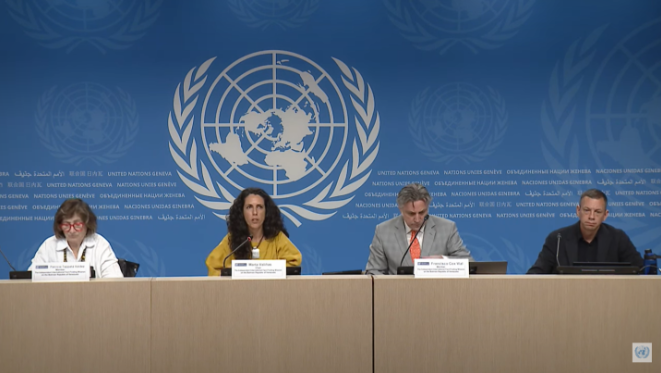A new process of dialogue and negotiation was announced by the government and the main opposition parties. I think the initiative is positive by itself. The Venezuelan conflict needs peaceful solutions under the national Constitution. The history of humanity has shown that even the most intense confrontations have moments when the parties have established channels of dialogue for a cessation of hostilities.
Having the government and the opposition meet, dialogue, and seek some agreements does not necessarily mean the end of the confrontation but a reorientation of the conflict through mutual recognition and the progress in some basic commitments for joint action.
If the guidelines of this dialogue are other than envisioning and advancing concrete measures for the benefit of the population, the talks will have little legitimacy and will generate greater despair.
Unlike other rounds of dialogue that have taken place in the country in the last two decades, this one occurs in a very different national context. And this fact gives it a very different singularity that cannot be ignored in terms of the expectations and demands that civil society must present to both sides.
The talks take place in the context of a complex humanitarian emergency afflicting the country as a consequence of the deepening of the economic and social crisis to such an extent that has required the request for assistance through humanitarian aid provided by the United Nations, foreign governments, and other international institutions.
Millions of families are living in poverty, millions are hungry, unemployment is rife, wages are miserable, the provision of public services is in a state of chaos, and health and education are in a permanent and worsening crisis.
High inflation rates, the deterioration of the country’s productive capacity, including the oil industry, and legal uncertainty on national or foreign investment adds up to the country’s woes.
The talks also take place in a context of serious and systematic human rights violations to the extent of constituting crimes against humanity, in a situation of structural impunity that has favored their repetition, affecting a large number of people.
As the dialogue develops in Mexico, the United Nations Fact-Finding Mission and the International Criminal Court continue to carry out their work. The two instances focus on preventing impunity for the crimes perpetrated in Venezuela, each under a specific mandate.
One expression of those crimes against humanity committed by officials of the government that today engage in this process of dialogue is the existence of more than 250 political prisoners, the thousands of others subjected to prosecution for dissenting, as well as thousands of extrajudicial executions carried out by the police and the military, mainly against poor young people.
All under a justice system that turns its back on the rights of the people and remains at the service of persecution for political reasons and a guarantor of impunity.
Finally, the dialogue takes place amid a national health emergency due to the covid-19 pandemic. An emergency that claims hundreds of lives every month and in which the authorities have shown no intention to advance a serious plan for mass vaccination at a pace that circumstances demand. The pandemic continues to be handled under excluding criteria, hindering the add up of all possible capacities for an adequate response.
Under this national context, focusing the talks and possible agreements on electoral conditions for future elections would mean setting aside millions who would like to vote but also have the urgent need to have at least one meal each day. It would mean turning our backs on thousands of families who would like to participate in an electoral process but also fight every day to achieve justice for being victims of crimes against humanity. It would mean neglecting the voices of health workers and the general population that aspires to be vaccinated soon.
We must demand the government and the opposition reach agreements on (1) a consensual plan for mass vaccination; (2) facilitating the in field operation of national and international institutions with the will to grant humanitarian aid to vulnerable populations; (3) the release of all civilian and military political prisoners and the granting of guarantees for the return of exiles; (4) the reinstitutionalization of the country, including the selection of new magistrates for the Supreme Court of Justice, a new Ombudsman, and a new Attorney General; (5) the demilitarization of citizen security and the investigation and sanction of those responsible for serious human rights violations, and (6) adequate conditions to allow the unobstructed participation of political parties in any electoral contest and the convening of an electoral timetable with an independent National Electoral Council.
We must also demand agreements on the adoption of measures to recover living wages, decent pensions for the elderly, and a plan to create jobs and support the agriculture, trade, and industrial sectors under a policy to curb inflation and increase productivity.
Finally, we must demand a halt to the restrictions on civic space and an end to the persecution of civil society organizations.
We shall not settle for the electoral path and better conditions for political parties. The situation in the country demands much more.
Translated by José Rafael Medina




